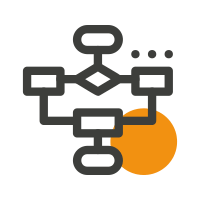PPC Agency Melbourne: Grow Your Business with Paid Search
Reach Your Ideal Clients Online and Amplify ROI with Our Expertise
Driving Results with Pay Per Click: Your Fast-Track to Online Growth
In the ever-competitive digital landscape, standing out is no small feat. As business owners like you seek tangible results, our specialized Pay Per Click Agency offers a clear pathway. At Search Traffic Success, we blend strategy with execution to connect you directly to your target audience. Based in Melbourne, we understand the nuances of the Australian market, ensuring your ads don’t just get seen—they convert. Let’s transform clicks into loyal customers together.

Results-Driven PPC Campaigns That Deliver
Harnessing the power of precise targeting, we ensure your ads resonate with the people who matter most.

Analytical Excellence Ensuring Cost Efficiency
With meticulous analysis, we refine campaigns to guarantee optimal performance without unnecessary spend.
Search Traffic Success
Our tailored services
We customize your PPC campaigns based on in-depth market analysis and your unique business goals, ensuring they resonate with the desired audience.
Our experts utilise advanced techniques in bid management to maximise your ad spend efficiency, striking the perfect balance between budget and returns.
By identifying and utilizing negative keywords, we prevent wasteful ad spending, ensuring your budget is exclusively for queries that convert to business.
We employ continuous ad split testing to determine the most effective ad elements, refining every aspect from headline to call-to-action for peak performance.
Focusing on what matters most, we set up detailed conversion tracking to understand every click’s journey, providing insights for informed, strategic adjustments.
our approach
Key Metrics for Measuring Marketing Success
Navigating the digital landscape can be daunting, but with a Pay Per Click Agency, you’re equipped to conquer the challenges. It’s not just about gathering clicks; it’s about understanding which key metrics indicate genuine interest, engagement, and, ultimately, sales. By focusing on these insights, you can refine your strategies, ensuring that each decision is informed and each action propels your business forward. This way, you’re not just floating in the digital space; you’re steering your business towards tangible success with precision.
Customer Acquisition Costs (CAC)
30% is the average reduction we see in CAC (in 3 months) from the day we manage it. Reduce your customer acquisition cost with our expert management of Google Ads and Shopping campaigns.
Average Order Value (AOV)
28% is the average increase in AOV we achieve in a 12 month span. Boost your average order value with data-driven insights, including order bumps, bundling, and upselling, expertly identified by our team.
Customer Lifetime Value (CLV)
We grew customer lifetime value, on average across all industries we have grown CLV by over 55% in an 12 month period. Increase your CLV with referral programs, personalised campaigns, and full funnel content marketing.
Conversion Rate
68% is the average increase in conversion rate on all Google Shopping campaigns we manage (within a 12 month period), through a suite of optimisation activities like revamping abandon cart sequences or improving product landing pages.
Let Our Pay Per Click Agency Scale Your Business
Why Choose Search Traffic Success
Expert-Led Strategies At Search Traffic Success, we’re not just marketers; we’re your strategic allies in growth. Our team comprises seasoned experts who delve into the nuances of PPC, crafting strategies that resonate with your target market and industry trends, ensuring each click positions you closer to your business aspirations.
Custom Solutions for Unique Goals Recognizing that every business landscape is different, we shun the one-size-fits-all approach. Instead, we meticulously design custom PPC campaigns that align with your specific business objectives, market dynamics, and budget considerations, paving the way for outcomes that truly stand out.
Transparent Reporting Clarity drives trust and informed decisions. Our approach to reporting is rooted in transparency and education, meaning you’re never in the dark about where your investment goes. We provide detailed, understandable reports that illuminate your campaign’s performance and the strategic pivots we’re making for continual improvement.
Ethical Practices In an industry rife with quick fixes and dubious tactics, we stand firm in our commitment to ethical marketing practices. We execute strategies that are not only effective but also respect ethical standards, ensuring your business’s long-term success and reputation remain unblemished.
Ongoing Optimization The digital marketing landscape is ever-evolving, and so are we. Our commitment to your campaign doesn’t end with its launch. We constantly monitor, analyse, and refine your PPC initiatives, responding to analytical insights and market trends, ensuring enduring relevance and sustained growth.

Increasing Online Visibility
Elevate your brand's online presence with our strategic SEO and Google Ads approach, making your business a first choice for prospects navigating the web.

Attracting More Customers
Draw in a larger audience keen on your services through compelling ad copies and SEO tactics, turning searches into valuable customer engagements.

Precise Targeting and Cost-Effective Advertising
Invest smartly with PPC's precise targeting, reaching your ideal demographic without overspending, ensuring every dollar contributes to meaningful interactions.

Measurable Growth and Return on Investment
Witness your business transformation through concrete data. Our detailed analytics report your campaign's true impact, confirming your profitable trajectory with clear, measurable ROI.
Opting for a PPC agency can be a pivotal decision in your digital marketing strategy, offering distinct advantages that range from industry expertise to performance maximisation. Here’s why engaging a PPC agency is often a game-changer:
Expertise and Experience: PPC agencies are specialists in their field, possessing a depth of experience across various industries and markets. They understand the nuanced dynamics of different PPC platforms and can navigate the complexities that individuals might overlook.
Resource Allocation: Running effective PPC campaigns requires time, effort, and dedication. When you engage an agency, you’re accessing a team of specialists who handle keyword research, campaign setup, optimization, and analysis, freeing you to focus on your core business responsibilities.
Advanced Tools and Technologies: PPC agencies invest in state-of-the-art tools for keyword tracking, analytics, competitor analysis, and automated bidding strategies. These resources, often costly for an individual business, are part and parcel of an agency’s offerings.
Continuous Optimization: PPC campaigns need regular adjustments and data analysis for optimal performance. Agencies don’t just set and forget; they continuously refine campaigns based on performance data, market trends, and platform updates.
Comprehensive Strategy Development: Beyond ad creation, PPC agencies develop holistic strategies encompassing market research, competitive analysis, and segmentation. This comprehensive approach ensures that campaigns resonate with the target audience and meet business objectives.
Cost Management and ROI Improvement: Agencies excel in budget management, ensuring your PPC spend garners the highest possible return on investment. Their expertise helps avoid common mistakes that can drain budgets, ensuring funds are allocated effectively.
Insightful Reporting: PPC agencies provide detailed reports, translating data into insights that can guide business decisions. These regular analytics and performance breakdowns are invaluable for understanding your campaign’s impact and areas for improvement.
Scalability: As your business grows, so do your marketing needs. PPC agencies can effortlessly scale your campaigns, adapting to increased demand or shifting market conditions without compromising performance.
In essence, a PPC agency offers a blend of technical expertise, industry insights, and dedicated resources that enhance campaign performance. Their strategic approach, combined with ongoing optimisation, ensures your marketing budget is effectively employed, driving tangible results and business growth.
In the bustling digital bazaars of the internet, where businesses vie for consumer attention, standing out is both an art and a science. This dynamic is where a PPC (Pay-Per-Click) agency becomes not just beneficial but essential. But why is that?
Expert Navigation Through Complexity: Digital marketplaces are oceans of complexity with currents of constant change. A PPC agency serves as an experienced navigator, capable of steering your advertising campaigns through these unpredictable waves. They understand the algorithms, the ever-changing policies, the competitive landscape, and the strategies that overcome obscurity. They can decrypt the complexities of PPC environments like Google Ads, ensuring your marketing doesn’t just reach the digital marketplace but gets noticed by the right people.
Strategic Resource Utilization: Every dollar in your marketing budget must justify itself. PPC agencies specialize in making sure your investment reaps measurable rewards. They achieve this through strategic keyword research, audience analysis, and competitive intelligence, ensuring your ads appear to relevant prospects without exceeding budget constraints. This targeted approach minimizes wastage of resources on uninterested parties, concentrating your campaign on areas for maximum return on investment.
Data-Driven Decision Making: In digital marketing, intuition is a guest, but data is the host. PPC agencies thrive on analytics, interpreting vast amounts of data to form actionable insights. They assess everything from click-through rates to conversions, using these statistics to continually refine your advertising for better performance. This rigorous, data-driven approach to decision-making means your campaign strategies are grounded in what works, not what feels right.
Adaptive Strategies for Dynamic Markets: Digital marketplaces don’t sit still. Consumer trends, market conditions, and competitive factors shift. A PPC agency is adept at reading these shifts, agilely adapting your advertising strategies to match. This agility ensures your marketing remains relevant and competitive, capable of seizing new opportunities or averting threats.
Focus on Core Business: With a PPC agency at the helm of your digital advertising, business leaders can focus on core business responsibilities. Knowing experts are managing your online presence relieves the immense time and effort pressure, allowing you to dedicate resources where they’re most impactful within your organization.
Long-term Partnership for Growth: Engaging a PPC agency is more than a marketing tactic; it’s forging a partnership for growth. Agencies don’t just launch campaigns; they monitor, adjust, and strategize for long-term performance. They understand your business goals, aligning their strategies with your broader objectives, ensuring your digital presence is not just a billboard but a dynamic conduit for growth and engagement.
By grasping the intricacies of paid search and committing to your success, a PPC agency is an indispensable ally in carving out your space in competitive digital marketplaces, turning the chaos of the internet into a ladder for your business ascent.
The notion of guaranteeing a spot on Google’s first page is a common query and expectation amongst advertisers when it comes to PPC advertising. However, it’s vital to understand the mechanics behind Google’s ad placements to set realistic expectations and strategize effectively.
Ad Auction and Quality Score: Google operates on an ad auction system, which is not solely dependent on who bids the highest. Your ad’s placement is influenced by a combination of factors, including your bid amount, the quality of your ads, and the landing page experience. This metric, known as the Quality Score, evaluates how relevant your ad is to the user’s query, the expected click-through rate, and how user-friendly your landing page is. A high Quality Score can improve your ad’s position at a lower cost.
Competitive Keywords and Industry: Some industries are incredibly competitive, with numerous businesses vying for top ad placement for the same keywords. The more advertisers there are for a specific keyword, the more you may need to bid for your ad to be prominently placed. It’s important to balance between competitive keywords and those niche to your business, which could be more cost-effective and targeted.
Ad Rank Thresholds: Google has minimum thresholds for Ad Rank, Quality Score, and bids. Even if there are fewer ads competing for a particular keyword, your ad may not appear if it doesn’t meet these minimum thresholds. This measure ensures that only ads of a certain quality and relevance appear on the first page.
Dynamic Nature of Ads: Ad positions on Google are not static. They are subject to fluctuations based on competitor strategies, your own bid adjustments, and changes in user search patterns. Continuous optimisation and responsiveness to analytics are critical for maintaining a strong presence.
No Guaranteed Placements: Despite employing best practices, no PPC agency can “guarantee” first-page placement due to the variables in play. The focus should instead be on a combination of strategies to increase the probability of first-page placement, such as improving the ad’s quality, relevance, and the user experience of the landing page.
In essence, while securing a first-page spot on Google’s SERPs can significantly increase visibility, it’s a multifaceted challenge that requires more than just high bidding. A holistic strategy, focusing on quality and relevance backed by continuous optimisation, is the key to sustainable, long-term success in PPC advertising.
Understanding the role of PPC in business growth is essential for any entrepreneur keen on leveraging digital avenues for expansion. PPC, or pay-per-click advertising, isn’t just about clicks; it’s a strategic tool that, when used effectively, can drive various positive outcomes for your business.
Immediate Traffic and Lead Generation: One of the most direct impacts of PPC is its ability to generate traffic to your website swiftly. Unlike organic methods, which take time to build momentum, a well-targeted PPC campaign can provide immediate visibility, helping to bring in leads more quickly and predictably, which is particularly crucial for new launches or time-sensitive offers.
Targeted Outreach: PPC campaigns allow for intricate targeting, meaning your ads are displayed to people who are more likely to be interested in your offerings. This targeting includes demographics, user interests, location, and even the type of device used. By narrowing your audience, you increase the likelihood of attracting high-quality leads more prone to conversion, thereby directly contributing to business growth.
Brand Recognition and Authority: Regular visibility at the top of search engine results can help establish your brand within your industry, especially in the eyes of potential customers actively searching for your product or service. Over time, this visibility can build your business’s reputation and recognition, even if every click doesn’t lead to a sale.
Data-Driven Insights and Agility: PPC campaigns generate a wealth of data, offering insights that can drive strategic decisions across your business. From understanding customer behavior to preferences for product offerings, these data points are invaluable. Moreover, the agility of PPC allows you to tweak campaigns based on performance, ensuring resources are not wasted and are aligned with your growth strategies.
Scalability and Control Over Costs: One of the standout features of PPC is the control it offers over your advertising costs. You can set budgets per campaign and adjust as needed. This flexibility means that PPC can scale with your business, ensuring you’re not overspending but have the option to be more aggressive when the opportunity arises.
Synergy with Other Marketing Efforts: PPC works exceptionally well in conjunction with other digital marketing strategies like SEO, content marketing, and social media campaigns. For instance, insights from PPC analytics can inform your SEO strategies and vice versa. This integrated approach strengthens your overall online presence, contributing to sustained growth.
In summary, PPC isn’t just a marketing strategy; it’s an integral business growth driver, offering quick entry to market, unparalleled audience targeting, and a wealth of actionable data. It’s a flexible, scalable, and controllable investment that can yield substantial returns when managed effectively.
Achieving a strong Return on Investment (ROI) is a central goal for any business investment, and PPC campaigns are no exception. However, navigating the complexities of PPC to ensure profitability requires strategic planning, execution, and ongoing management. Here’s how you can enhance your chances of seeing a good ROI from your PPC efforts:
Strategic Keyword Selection: The foundation of successful PPC campaigns lies in keyword research. It’s about finding a balance between high-volume keywords and those with less competition but higher intent. Integrating long-tail keywords, which are more specific and often less expensive, can attract more qualified searchers who are ready to convert.
Crafting Compelling Ad Copy: Your ads must resonate with potential customers, addressing their needs and pain points, and compelling them to click through. This relevance is not just crucial for user experience but also affects your Quality Score with Google, influencing how much you pay per click.
Optimising Landing Pages: The journey doesn’t stop at the click. Your landing pages must align closely with your ad messages, offering a seamless and intuitive user experience. High-converting landing pages feature clear, concise content, a strong call-to-action, and minimal distractions to guide visitors towards conversion.
Utilising Smart Bidding Strategies: PPC platforms offer various bidding strategies based on your specific goals, such as maximising conversions, targeting return on ad spend, or enhancing click-through rates. Using AI-driven automation for bidding can optimise your campaigns for better ROI, adjusting in real time to various factors that might influence campaign performance.
Tracking and Analytics: What gets measured, gets managed. Implementing conversion tracking and using analytics tools allows you to see what’s working and what’s not. Understanding your campaigns’ performance in granular detail enables more informed decision-making and strategic tweaks.
Negative Keywords and Continuous Refinement: Use negative keywords to prevent your ads from showing for irrelevant searches, saving money on wasted clicks. Continuous campaign refinement, through regular analysis and adjustments, helps eliminate ineffective keywords or demographics, reallocating budget to more profitable segments.
Comprehensive Approach: Consider your PPC campaigns within your broader digital marketing strategy. Integrating with SEO, content marketing, and social media efforts can create a more cohesive online presence, enhancing each tactic’s effectiveness.
Achieving a healthy ROI from your PPC campaigns doesn’t happen by accident; it’s a result of strategic, informed, and continual optimisation efforts. By understanding and implementing these key aspects within your campaigns, you position your business to not just spend but genuinely invest in every click.
Engaging in PPC advertising offers numerous benefits, but like any marketing method, it comes with its set of risks. Identifying these risks and understanding strategies to mitigate them is crucial for maintaining efficient and cost-effective campaigns.
Financial Risk and Budget Management: One of the most evident risks in PPC is spending money without seeing a return on investment. This situation can occur with poorly managed campaigns, ineffective targeting, or bidding wars over competitive keywords. To mitigate this, it’s essential to set a realistic budget, understand the market and your competition, and avoid overspending on high-competition keywords without the necessary data to support such decisions.
Click Fraud: This nefarious practice involves repeated clicks on a PPC ad with malicious intent, often to drain a competitor’s advertising budget. Combatting click fraud requires using tools that monitor suspicious click activities, setting up IP exclusions, and regularly auditing traffic sources. Reporting any anomalies to your ad network is also crucial as they have protocols to help protect advertisers.
Low-Quality Traffic: Driving vast amounts of traffic to your site is meaningless if those visitors aren’t genuinely interested in what you offer. This issue can be addressed by refining your keyword strategies, improving ad copy, using negative keywords to exclude irrelevant traffic, and continually optimising for higher-quality leads.
Ad Misplacement: Sometimes, your ads may appear on sites that don’t align with your brand values, potentially harming your reputation. Utilising platform features like placement exclusions, topic exclusions, and site category options can help control where your ads appear.
Overdependence on PPC: Relying solely on PPC without investing in organic strategies (like SEO) can be risky because industry changes, increased competition, or budget constraints can impact campaign viability. Ensure you have a balanced marketing strategy that includes organic and paid efforts for long-term sustainability.
Landing Page and Conversion Dissonance: If your ad promises one thing, but your landing page delivers something different, you risk losing trust and diminishing conversion rates. Consistency between your ad message and landing page content is vital, along with continuous A/B testing to determine what resonates most with your audience.
Failure to Monitor and Adapt: PPC is not a set-and-forget strategy. Neglecting to monitor campaigns can lead to wasted spend and missed opportunities. Regular reviews and adjustments, informed by data analytics, are necessary to keep campaigns fresh, competitive, and effective.
While PPC advertising comes with inherent risks, being proactive and informed can significantly reduce these potential pitfalls. By implementing strategic safeguards and continuous optimization, you can better position your campaigns for success, safeguarding your investment, and enhancing your opportunities for positive returns.
PPC and SEO are powerful strategies in their own rights, but when combined, they can work synergistically to enhance your online presence and conversions. Understanding how PPC can complement SEO helps in crafting a balanced, comprehensive digital marketing strategy.
Visibility and Dominance: While SEO efforts are geared towards ranking high in organic search results, PPC ads occupy prominent positions above the organic listings. This strategy ensures that your presence is doubly prominent on search results pages, essentially dominating these spaces and offering users more opportunities to click through to your website.
Keyword Synergy: Use PPC campaign data to inform your SEO strategy. The immediate feedback on keyword performance in PPC can provide valuable insights for your SEO keyword strategy. Conversely, SEO can identify valuable organic keywords that can be incorporated into PPC campaigns, creating a consistent message across both channels.
Speed and Agility: While organic SEO is a long-term strategy, PPC is known for its ability to drive immediate traffic. During the period where SEO is still gaining momentum, PPC can bring quick wins. It’s also adaptable in real-time, allowing you to respond to market changes, seasonal trends, or competitor moves, ensuring you’re always competitive and relevant.
Enhancing Content Strategy: The performance data from PPC ad campaigns provide insights into the messages and offers that resonate most with your audience. This information can be used to shape SEO content strategies, ensuring the creation of materials that are both engaging and conversion-friendly.
A/B Testing and Optimisation: PPC allows for more controlled experimentation through A/B testing. You can use these tests to see what kind of ad copy, landing pages, or calls to action work best, and apply these learnings to your organic content and landing pages.
Mitigating Risk: Changes in search engine algorithms can affect your organic rankings unexpectedly. By having PPC in place, you ensure a level of immunity against sudden visibility drops in organic search. This balanced approach means you maintain visibility while adapting your SEO strategy to algorithm changes.
Holistic User Experience: Consistency in messaging between PPC and SEO efforts ensures a cohesive narrative about your brand. This unified approach enhances the user’s journey, increasing trust, and improving the chances of conversion, as each strategy reinforces the other.
In essence, combining PPC and SEO harnesses the strengths of both strategies, creating a more robust, resilient online presence. By allowing these strategies to inform and complement each other, you create a more well-rounded approach that drives both immediate results and sustainable growth.
Evaluating the success of a PPC campaign goes beyond just looking at the click-through rates. It involves a comprehensive understanding of multiple metrics that, together, give a clear picture of performance and ROI. Here’s how to gauge the success of your campaigns:
Click-Through Rate (CTR): This basic metric measures the number of clicks your ad receives divided by its impressions. A higher CTR indicates that users find your ad relevant, but this doesn’t always correlate with conversions, which are ultimately more valuable.
Conversion Rate: Perhaps the most critical metric, this reflects the percentage of ad clicks that result in the desired action, such as a sale, sign-up, or form submission. A successful campaign has a healthy conversion rate, proving that it’s not just driving traffic, but also compelling prospects to act.
Quality Score: Google assigns a Quality Score to your ads based on several factors, including the relevance of your keywords, the quality of your landing page, and your CTR. A higher Quality Score can lead to lower costs and better ad positions.
Cost Per Conversion (CPC): This metric is vital for understanding your ROI. It measures how much you’re spending for each successful action a user takes. Balancing the cost of conversions with the value they bring is crucial for a campaign’s sustainability and success.
Ad Position and Impression Share: These metrics show how your ads are stacking up against the competition. Your ad’s position on the search results page can significantly impact visibility and clicks, while impression share reflects the number of impressions your ads receive compared to the total number they could get.
Return on Ad Spend (ROAS): This vital metric helps you understand the effectiveness of your advertising by comparing the revenue generated from your ads to the cost of those ads. A higher ROAS indicates a higher level of efficiency and success for your campaign.
Customer Lifetime Value (CLV): While more complex to calculate, understanding the CLV helps you measure the total worth of a customer over their entire lifespan with your brand, not just the initial purchase. This insight is crucial for formulating long-term PPC strategies.
Monitoring these metrics regularly provides a rounded understanding of your PPC campaign’s performance. However, these are not standalone indicators; success is determined by how these metrics align with your overall business objectives, both short and long term. Customising your KPIs based on your unique business goals will yield the most relevant and insightful performance evaluation.
Deciding whether to manage PPC campaigns yourself or enlist the expertise of a professional hinges on various factors. Both approaches have their merits, but the decision comes down to your budget, expertise, and the complexity of your campaigns. Below we dissect both avenues:
Understanding PPC Complexity: PPC isn’t just about setting up ads. It involves continuous keyword research, market analysis, and staying updated with platform-specific trends and updates. If these aspects seem overwhelming or beyond your current skill set, hiring a professional may be advantageous.
Time Investment: Effective PPC management is time-consuming, requiring regular attention to detail, data analysis, and the ability to make informed decisions quickly. For business owners already stretched thin, this could be a decisive factor in seeking a professional’s assistance.
Access to Tools and Resources: Professionals often have access to premium tools, software, and data analytics platforms that are integral to campaign success. These resources enable more informed strategies, refined targeting, and in-depth campaign analysis that might not be otherwise accessible.
Cost Consideration: While managing your campaigns saves on professional fees, it’s also important to factor in the potential cost of mistakes made due to inexperience, or the opportunity cost of time spent away from core business activities. A professional, though an added expense, typically brings in higher ROI that justifies the cost.
Learning Curve: PPC platforms have intricate functionalities. While basic campaign setups are straightforward, leveraging advanced features for optimisation requires considerable learning and practical experience.
Professional Expertise: PPC professionals bring to the table years of experience and a wealth of industry knowledge. This expertise allows them to craft tailored strategies, anticipate market trends, and navigate the competitive landscape more effectively than a novice advertiser.
Performance Analysis and Reporting: Professionals provide detailed performance reports and can translate data into actionable insights. They can objectively assess campaign performance, whereas business owners might be too emotionally invested to make unbiased decisions.
Scaling Capabilities: As your business grows, so does the complexity of your campaigns. Professionals are equipped to manage this growth and optimise campaigns at scale, ensuring sustainable growth and consistent performance.
In conclusion, while self-management of PPC campaigns offers direct control and saves on fees, the expertise, resources, and strategic insight provided by a professional often lead to more effective campaigns, higher returns, and ultimately, more robust business growth. The choice should align with your business’s resources, goals, and growth trajectory.
In today’s digital age, the distinction between mobile and desktop PPC is crucial due to varying user behaviours and technical specifications. Understanding these differences is essential in crafting a PPC strategy that effectively encompasses both platforms. Here’s what sets them apart:
User Behaviour: Mobile users have different search intents and habits compared to desktop users. They often seek quick, easily digestible information, immediate solutions, and local services. Your mobile PPC strategy needs to accommodate these behaviours, necessitating concise, powerful ad copy, and a frictionless, fast-loading landing page experience.
Ad Formats: Mobile screens offer less real estate for ads, impacting how your message is delivered. Successful mobile PPC ads are straightforward, with clear calls-to-action that suit the on-the-go nature of mobile users. Furthermore, certain ad extensions are particularly effective on mobile, contributing to a richer ad experience.
Targeting Options: Mobile PPC allows for more precise targeting based on location, device, and even time of day, taking advantage of mobile users’ habits and their propensity for immediate action. Tailoring your bids for different circumstances, such as increasing bids for mobile users in proximity to your store, can yield substantial results.
Conversion Optimization: Mobile users interact differently with content, often leading to higher bounce rates if the user experience doesn’t meet expectations. Optimizing for mobile involves ensuring your site is mobile-responsive, pages load quickly, and the user journey towards conversion is as seamless as possible.
Voice Search Consideration: With the rise of digital assistants, voice search is more prevalent on mobile. This trend necessitates keyword strategies that account for conversational, long-tail search queries and questions.
Cross-Device Strategy: Users often switch between devices along their journey to conversion. It’s vital to have a consistent, cross-device strategy to ensure you’re capturing all potential touchpoints. This approach includes understanding how different devices contribute to the conversion funnel.
Tracking and Analytics: Mobile campaigns may sometimes have lower conversion rates, but they play a crucial role in the customer journey. Proper tracking setup allows you to attribute conversions accurately and understand the role mobile plays in the larger context of your campaigns.
By acknowledging and adapting to these differences, advertisers can craft more effective PPC campaigns. It’s not about choosing between mobile and desktop, but rather understanding how the two complement each other within a comprehensive, holistic PPC strategy. Tailoring your approach for each platform ensures you capture the attention of your target audience, regardless of the device they use.

